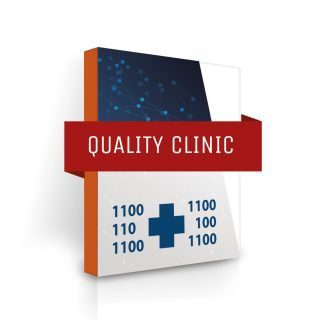Description
As an imaginary role, it is difficult to determine the specific responsibilities and tasks of Imaginer Roberts as a Quality Doctor. However, as a Quality Doctor, one might assume that Imaginer Roberts is responsible for overseeing and ensuring the quality of healthcare services provided to patients. This could involve monitoring patient outcomes, evaluating the effectiveness of medical treatments, identifying areas for improvement, and implementing strategies to enhance the quality of care. Additionally, Imaginer Roberts might be involved in developing policies and procedures to ensure compliance with regulatory standards and promoting a culture of safety within the healthcare organization.
Job description:
As a Quality Doctor, you will be responsible for ensuring that our industrial company delivers high-quality products and services to our customers. You will work closely with other departments and team members to identify areas for improvement, implement quality control measures, and monitor our products and processes to ensure they meet or exceed established quality standards.
Key Responsibilities:
- Develop and implement quality control systems and procedures to ensure compliance with industry standards and regulations.
- Collaborate with other departments to identify and address quality issues and implement corrective actions.
- Monitor production processes and perform regular inspections to ensure that products meet established quality standards.
- Conduct internal audits to identify areas for improvement and ensure compliance with quality standards.
- Train and educate employees on quality control measures and provide guidance on how to improve quality.
- Develop and maintain quality assurance documentation, including process maps, work instructions, and standard operating procedures.
- Work with suppliers and customers to ensure that quality requirements are met throughout the supply chain.
- Conduct root cause analysis and implement corrective actions to prevent quality issues from recurring.
- Manage the Non-Conformance Report (NCR) process, including identifying root cause and corrective actions to prevent recurrence.
- Provide technical support and guidance to team members and other departments to ensure that quality requirements are met.
Qualifications:
- Bachelor’s degree in engineering, quality management, or a related field.
- 5+ years of experience in quality management in an industrial or manufacturing environment.
- Knowledge of quality control systems, including ISO 9001, Six Sigma, or other quality management frameworks.
- Strong analytical skills and attention to detail.
- Excellent communication skills, both written and verbal.
- Ability to work independently and as part of a team.
- Experience with root cause analysis and corrective action implementation.
- Ability to read and interpret technical documents and drawings.
- Experience in supplier quality management and customer complaint resolution.
- Knowledge of statistical process control (SPC) and other quality monitoring tools.
This job description is intended to convey information essential to understanding the scope of the Quality Doctor position and it is not intended to be an exhaustive list of skills, efforts, duties, responsibilities, or working conditions associated with the position.
Some training recommendations to strengthen skills for a Quality Doctor role in an industrial company. These training suggestions are focused on self-learning and personal development, regardless of being employed in a company or not.
- Quality Management Systems: Training on the principles and practices of Quality Management Systems (QMS), including ISO 9001, can help you understand the importance of quality in an organization and how to implement QMS effectively. Many online courses and certifications are available on this topic.
- Lean Six Sigma: Lean Six Sigma is a methodology that helps improve the quality and efficiency of processes by identifying and eliminating waste and defects. It is a widely recognized certification that can be beneficial for individuals interested in quality management.
- Statistical Analysis: A good understanding of statistical analysis is essential for a Quality Doctor. Training in statistical analysis tools such as Statistical Process Control (SPC), Design of Experiments (DOE), and data visualization can help in analyzing data and making informed decisions.
- Root Cause Analysis: Understanding how to identify the root cause of a problem is essential for quality management. Training in various root cause analysis techniques like 5-Why, Fishbone Diagrams, and Pareto Charts can help in identifying and addressing the underlying issues.
- Communication Skills: As a Quality Doctor, effective communication is crucial to explain quality-related issues to team members and stakeholders. Training in communication skills, including effective writing, presentation skills, and active listening, can help you communicate better.
- Project Management: Quality improvement initiatives involve project management skills, including planning, execution, and monitoring. Training in project management principles and tools such as Agile, Scrum, and Gantt Charts can help you manage projects effectively.
- Leadership Skills: Being a Quality Doctor, you may be leading a team or playing a significant role in quality management initiatives. Training in leadership skills can help you build essential qualities such as problem-solving, decision-making, and team building.
In conclusion, these are some training recommendations that can help you improve your skills as a Quality Doctor. You can explore online courses, certifications, and books on these topics to strengthen your knowledge and apply them to your work.
Interview question
- What inspired you to pursue a career as a Quality Doctor in an industrial company?
A: My passion for improving processes and products to achieve maximum customer satisfaction and my expertise in quality management systems led me to this career path.
- What are some of the key challenges that you have faced in your previous role as a Quality Doctor, and how did you overcome them?
A: One of the challenges I faced was implementing a new quality system across the organization. I addressed this by involving all stakeholders and conducting extensive training programs to ensure a smooth transition.
- How do you keep up to date with the latest developments in quality management, and what steps do you take to implement them in your work?
A: I attend regular training and workshops, participate in professional associations, and read industry publications to stay up to date. I then evaluate the potential impact of new developments and implement them where applicable.
- What methodologies do you use to identify and analyze quality problems, and how do you work with cross-functional teams to resolve them?
A: I use a variety of methodologies, including root cause analysis and process mapping, to identify and analyze quality problems. I then work closely with cross-functional teams to develop and implement corrective actions.
- What is your approach to implementing a continuous improvement program in an industrial setting, and how do you measure its success?
A: I follow a structured approach to continuous improvement that includes setting goals, identifying opportunities for improvement, implementing changes, and monitoring results. I measure success through key performance indicators and customer feedback.
- Can you describe a time when you had to make a difficult decision in your role as a Quality Doctor, and what steps did you take to arrive at a resolution?
A: One example was when we discovered a serious quality issue with a supplier’s product. I worked closely with the supplier to identify the root cause and develop a corrective action plan to ensure the issue did not happen again.
- How do you ensure that quality standards are maintained throughout the supply chain, and what steps do you take to mitigate risks associated with suppliers?
A: I establish clear quality requirements for suppliers, conduct audits, and work with them to implement corrective actions. I also have contingency plans in place to minimize the impact of supplier-related issues on our operations.
- What is your experience in leading quality management system audits, and how do you ensure that they are conducted effectively?
A: I have extensive experience in leading internal and external quality management system audits. I ensure they are conducted effectively by preparing comprehensive audit plans, conducting thorough audits, and following up on corrective actions.
- How do you ensure that your team is motivated and engaged in their work, and what steps do you take to foster a culture of quality excellence?
A: I provide regular feedback, recognize achievements, and offer opportunities for growth and development. I also foster a culture of continuous improvement by encouraging open communication and collaboration across teams.
- What do you believe are the most important qualities for a Quality Doctor in an industrial company, and how do you embody these qualities in your work?
A: I believe the most important qualities are attention to detail, analytical thinking, communication skills, leadership, and a commitment to continuous improvement. I embody these qualities by staying organized, being proactive in identifying and resolving issues, communicating clearly and effectively, providing guidance to my team, and leading by example.




